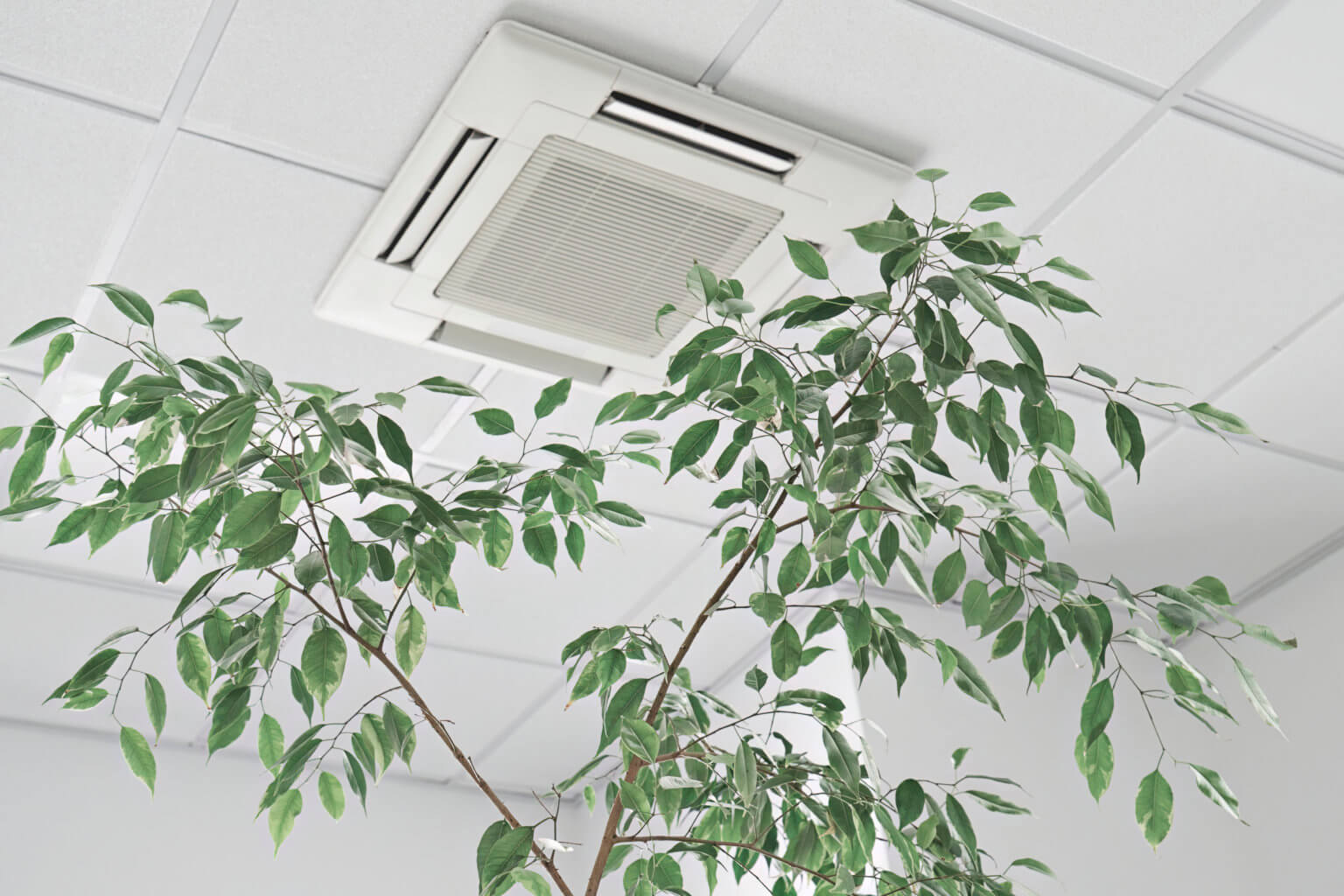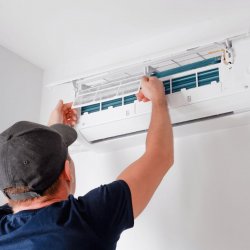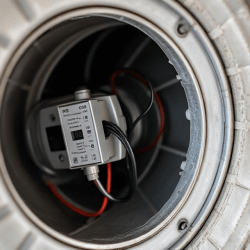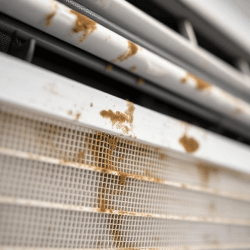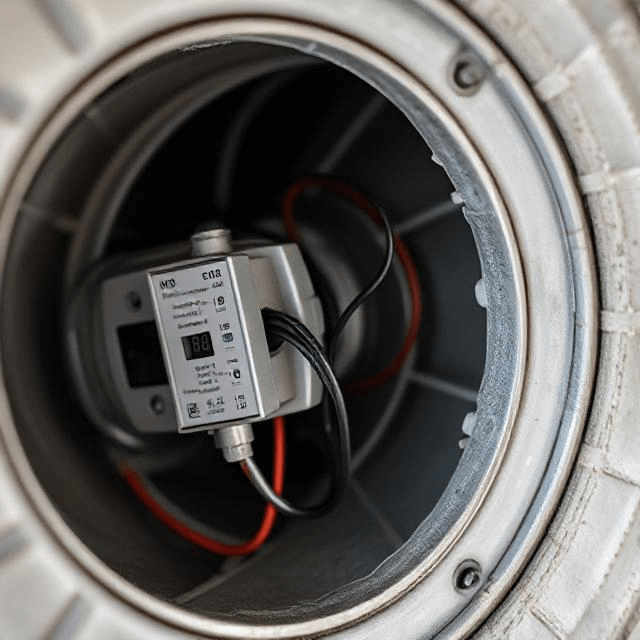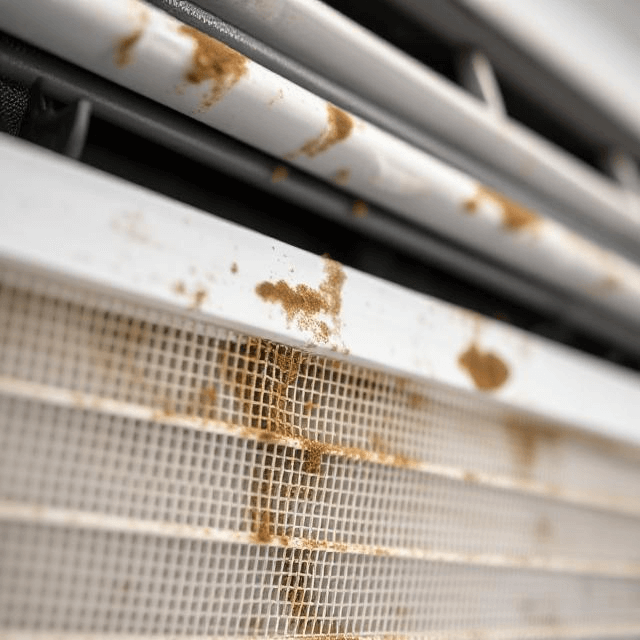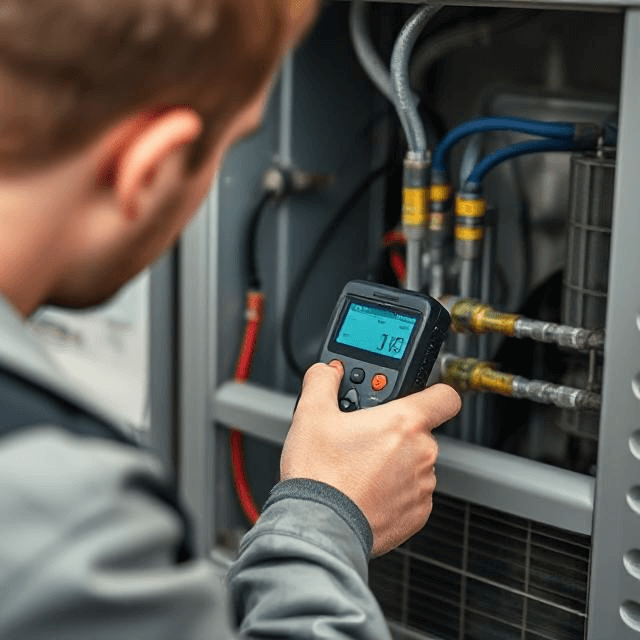Did you know that the average temperatures in Los Angeles from July 1 to September 30 hover just over 80 degrees Fahrenheit? As such, it’s a smart idea for Southern California homeowners to make sure they have an AC system that is reliable and properly cools their home every season.
If you’re in the market for a new central air conditioning system, you may be struggling with where to start. With so many brands and types of A/Cs available on the market today, how can you even know where to begin your search?
Luckily, the A/C installation experts at Season Control are here to help. With over 30 years of experience, our certified, licensed, and insured technicians know central air conditioning systems like the back of our hands.
In this guide, we’ll help you pick the perfect A/C system for your household, as well as provide tips for maintaining it so it can keep you cool for years to come. While we’re at it, we’ll also share some secrets on how to find a top-notch A/C repair company to keep your unit up and running for the long haul.
Keep reading this comprehensive buyer’s guide to ensure you’re selecting the right central air conditioner for your home and your household needs.
How Do Central A/C Systems Work?
Before you start your search, it’s important to develop a basic understanding of how a central air conditioning system works. Also known as aircon or central air, a central A/C system is intended to keep your entire home cool and crisp.
Your A/C system does this by first moving the warm air inside your house to the outside. A central A/C’s advanced refrigeration technology then chills the air before circulating it back into your house through registers and ductwork, promoting a comfortable living space despite the scorching temperatures outside.
You can also regulate the temperatures according to your personal preferences with a thermostat.
Today’s Modern Central A/C Systems
Has it been a while since you shopped for a new central air conditioning system? If so, A/C technology has come a long way and you are probably unaware of all the advances. Most A/C units last at least a decade, and today’s models are far more energy-efficient than their predecessors.
Ductless A/C systems have recently gained traction in the market. That’s because these systems are a lot more affordable than they were just a few years ago. Ductless central A/C systems are a good option if you’re retrofitting a permanent A/C system to your house that doesn’t already have ductwork.
The main difference between ducted and ductless air conditioning systems is that the former uses ducts to distribute cool air throughout your home. As we previously mentioned, the ducted A/C system will cool the air with refrigerant, then circulate that cooled air through ducts located throughout your house,
A ductless A/C system uses one to four or more indoor blower units, known as air handlers, to distribute the air. These handlers are mounted high up on your walls and are designed to be out of sight and out of mind. While these aren’t technically central air units, air handlers are extremely quiet and efficient.
A/C Sizing
One of the most important steps to choosing the perfect central A/C system for your home is to ensure the capacity is suited for the size of your home. Your new air conditioning system should be efficient enough to keep your entire home cool without wasting energy. If you buy a system that is too small, it won’t be able to keep up with the summer heat. On the other hand, if you buy one that is too big, it will use more energy and won’t be able to maintain the proper humidity levels, making your home feel damp and clammy.
So, how can you determine which central A/C system is the right fit for your home? An A/C’s size, or its cooling capacity, is measured in British Thermal Units (BTUs), or tons. This represents how much cool air the A/C system can produce.
It’s a good idea to talk to a seasoned A/C installation technician, like the ones at Season Control, before buying an A/C system. However, a good rule of thumb when choosing the right sized A/C is figuring you will need one BTU, or ton, for every 600 square feet of living space.
For instance, you might need to purchase a 3.5-ton central A/C system for a 2,000-square-foot home.
Again, it’s always best to consult with a dependable A/C technician before you buy a new system.
Cost Consideration
Another important factor to think about when you’re looking for a new A/C system is your budget. While the size of the system is certainly a big deal, you don’t want to spend more money than you need to.
An energy-efficient central A/C system is a great option for savvy spenders. These systems’ efficiency levels are indicated by the seasonal energy efficiency ratio (SEER), which is a number that is calculated by dividing the cooling output of the air conditioner by its electric input in watts. The SEER rating can help you clearly understand the energy efficiency of an entire cooling system.
To save more money, aim to buy a central A/C system that is as energy efficient as possible. Some other features to keep an eye out for include:
- Automatic delay fan switch: This enables the air handler to keep running for a set amount of time after the compressor switches off, ensuring your home stays cooler for longer.
- Filter indicator light: This feature indicates when your A/C filter needs to be changed. A/C air filters trap pesky pollutants, such as pet dander, dust, and pollen. The indicator light is a convenient way to keep on top of your A/C system’s maintenance to expand its lifespan.
- Fan-only switch: If this feature is activated, the air will continue circulating through your home even when the cooling function is turned off.
- Variable-speed blower: This feature is located inside the air handler and can function at different speeds, allowing for more precise temperature control in your house.
Additional Considerations
A couple of other things to consider when buying a new central air conditioning system are noise and reliability. Will a noisy system bother you? If so, read the noise level of the product. Manufacturers make this information readily available to consumers.
You should also consider the reliability of your new central A/C system. Before buying any system, read customer reviews about the product to determine how reliable it actually is.
You can also boost your A/C’s reliability by taking care of it properly with regular maintenance visits from a professional HVAC service provider like Season Control.
How to Keep Your Central A/C System Running for Longer
Now that you’ve bought your new central A/C system, it’s essential to know how to take care of it so you can enjoy it for years to come.
Some tips for extending the life of your central A/C include:
- Regularly changing the air filter
- Keeping it clean
- Repairing any leaks you notice as soon as possible
- Having your central A/C system inspected annually by a qualified A/C repair technician
Key Traits of a Quality A/C Repair Company
To keep your new central A/C running stronger for longer, it’s important to find the right HVAC company. Be sure to hire a company that has the following characteristics:
- Is licensed, bonded, and insured
- Has extensive A/C repair and installation experience
- Has a list of exceptional reviews and referrals from happy customers
- Is friendly and will gladly answer any questions you might have about your A/C system
Season Control Helps Los Angeles Homeowners Keep Their Cool
If you are in the market for a new central A/C system, call the A/C installation technicians at Season Control today. With over 30 years of experience, we have become one of the most trusted names in HVAC solutions in the Los Angeles area.
To learn more, contact us today by calling (818) 839-4746. We look forward to hearing from you soon!



